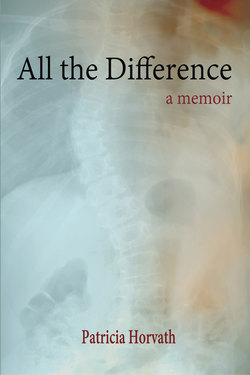Читать книгу All the Difference - Patricia Horvath - Страница 19
На сайте Литреса книга снята с продажи.
ОглавлениеAllowances
My mother has no memory of the English paper. When I show it to her she peers at the yellowed sheet, turning it over, running her finger along the heavily penciled notes. Then she refolds it, returning the past to me.
What does this mean? I ask. You made ‘allowances.’ What ‘allowances?’
Oh, honey, she says. That was so long ago. You had a lot of . . . issues. A fresh mouth. Stubborn. People—Tom, my mother—said I spoiled you, let you have your own way too much. They didn’t try to understand. You were so unhappy—who wouldn’t be?
As much as possible, I avoided my mother’s new husband. His dislike made me nervous. When he entered a room, I would leave. When his car pulled into the driveway, I would go upstairs. Sometimes, though, I wouldn’t hear the car. I’d be in the den, deep in stereo fog, listening to Led Zeppelin or the Stones. Eyes shut, headphones clamped tight, I’d startle as the dial spun to the EZ Listening station. Without a word, Tom would yank the headphones from the jack and walk away.
At night I could hear them. She’s thirteen. You’re the adult. She’s in a brace, can’t you just? And Tom’s words—attitude, straighten up, spoiled. From an economic perspective, I suppose that was true, I suppose I was spoiled. Because my mother had married an attorney, the son of a judge, we were no longer struggling, no longer a household headed by a single woman with a high school education. To help me sleep in the brace, my mother had bought me an air-conditioner. Later I would have my own phone, appointments with orthopedic surgeons at elite hospitals, private duty nurses, new clothes to fit my changing shape as I went in and out of braces and casts. It was my mother who paid for these things, but she was able to do so only because someone else now paid the mortgage and covered our household bills. As an adolescent, I never really stopped to consider this, never thought about how much worse things could have been without Tom’s income to soften my physical discomfort. Overnight we’d gone from scarcity to plenty. I took our new status and the things it bought for granted. What was money for if not to live well?
My mother bought me a stereo, one with bubble speakers, albeit no headphone jack. Music was one of the few things that took me out of myself, and she let me play it louder, I suspect, than if I hadn’t been braced. Her new husband believed in rules, deference, bedtimes. I’d never had a bedtime. So long as I remained on the Honor Roll, my mother didn’t care when I went to bed. “Sack Time, USA!” Tom would proclaim night after night. I’d glance at Chipper contemptuously as he scurried into his pajamas. He wanted to be liked. I wanted to watch Don Kirshner’s Rock Concert—downstairs, on the color TV. I stayed where I was. Tom spoke white noise, words I did not heed. My mother, I knew, would back me up.
For Christ’s sake. Let me raise my own kids!
They fought about family. About politics, money. Unlike Tom, my mother had grown up poor. Her mother had left school at fifteen, going to work in a dime store after her father was fatally scalded by a laundry room boiler. During the Depression, she picked cherries on a Michigan farm. My mother’s father joined the Navy right after high school. It was the GI Bill that vaulted him and his young family into the lower reaches of the middle class. Early in my grandfather’s life his parents divorced and he spent his childhood moving from rooming house to rooming house. He’d come home from school to find the boxes packed, his mother one step ahead of the landlord. My grandfather’s job was to carry the family’s lamp.
My mother, too, spent much of her childhood moving: Milwaukee, San Francisco, San Jose, Brooklyn, Long Island, Bridgeport, wherever her father was stationed. After the war, they moved from Brooklyn to a prefab housing development on Long Island. Little shitboxes, my grandmother called these houses. She hated Long Island—the soggy potato fields that were slowly being drained and parceled into suburban lots, the look-alike homes, the lack of transportation, the long walk into “town,” which was little more than a general store and a post office. To make things worse, her husband was soon reassigned to the naval base in Boston, increasing her sense of isolation.
This was when her drinking began in earnest. My grandparents separated, sending their two daughters into foster care with families that ranged from indifferent to hostile. My mother and aunt lived out of suitcases in strangers’ spare bedrooms. When, after nearly three years, their parents reconciled and my grandfather was reassigned to Panama, the entire family went with him. By now my mother was entering high school, a bright, vivacious girl who loved parties and clothes. She had two skirts and three blouses—all sewn by her mother.
It was in Panama that the first tremors of my grandfather’s Parkinson’s disease began. A taciturn man, he confided to my mother that he was afraid—something was happening that he did not understand and could not control. He put in for a transfer and was reassigned to a desk job in Bridgeport. It wasn’t long before he was unable to work, taking early retirement and disability pay.
